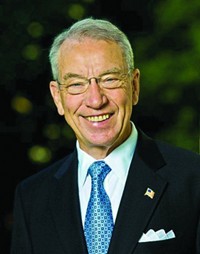Advertisement
Grab your lab coat. Let's get started
Welcome!
Welcome!
Create an account below to get 6 C&EN articles per month, receive newsletters and more - all free.
It seems this is your first time logging in online. Please enter the following information to continue.
As an ACS member you automatically get access to this site. All we need is few more details to create your reading experience.
Not you? Sign in with a different account.
Not you? Sign in with a different account.
ERROR 1
ERROR 1
ERROR 2
ERROR 2
ERROR 2
ERROR 2
ERROR 2
Password and Confirm password must match.
If you have an ACS member number, please enter it here so we can link this account to your membership. (optional)
ERROR 2
ACS values your privacy. By submitting your information, you are gaining access to C&EN and subscribing to our weekly newsletter. We use the information you provide to make your reading experience better, and we will never sell your data to third party members.
Policy
NIH Proposes Update Of Conflict-Of-Interest Rules
New reporting requirements are expected to enhance public trust in biomedical research
by Britt E. Erickson
May 21, 2010
The National Institutes of Health is proposing changes that would tighten financial conflict-of-interest rules for extramural researchers. The agency has been under pressure from Congress and the Inspector General of the Department of Health & Human Services to strengthen such rules for many years.
One of the key changes, published in today's Federal Register, is lowering the threshold for disclosure from $10,000 to $5,000. NIH grantees who receive more than $5,000 in a one-year period from industry payments or equity interests would be required to disclose that financial information to their institutions.
Another change is requiring each institution to determine when a financial conflict exists and to disclose the financial conflicts of its faculty in a public website. Under existing regulations, researchers determine when they have a financial conflict and institutions are not required to publicly reveal when faculty have such conflicts.
The changes "may provide some burden to the investigator and to the institutions, in terms of additional reporting requirements," NIH director Francis S. Collins noted during a press conference yesterday. But they are essential for "obtaining and maintaining the public trust in the integrity of the scientific enterprise," he said.
The proposed revisions would update existing regulations, which were put into place in 1995. NIH is accepting public comments on the proposed changes for 60 days and expects to release its final rule this summer.



Join the conversation
Contact the reporter
Submit a Letter to the Editor for publication
Engage with us on Twitter